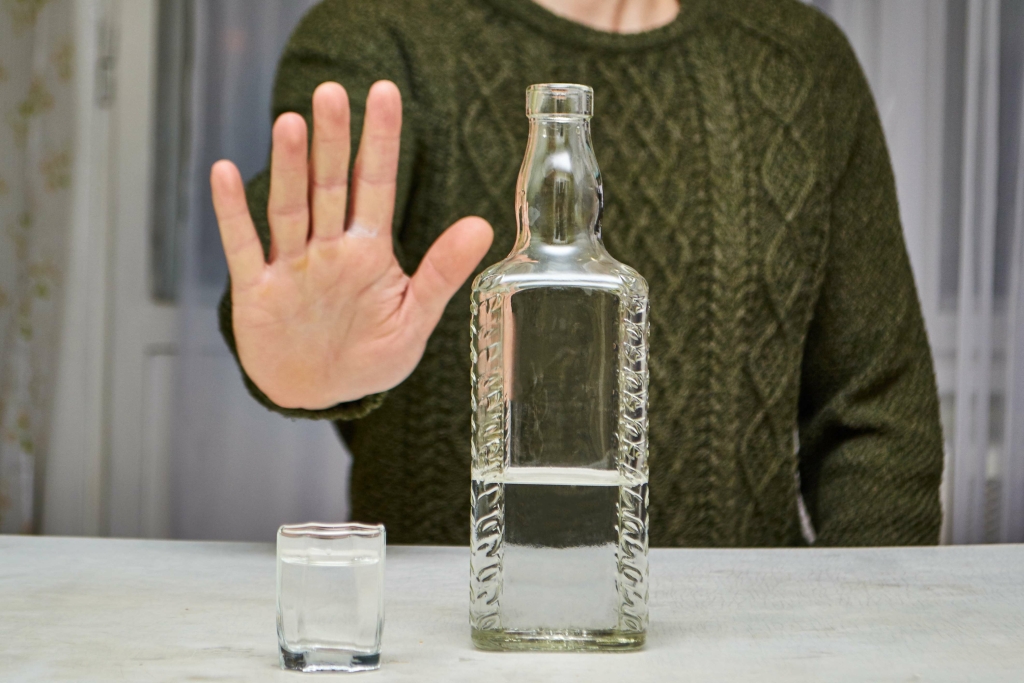Under the guidance of a medical professional, stimulants may be helpful for certain individuals. However, misuse of stimulants can have serious health consequences, including physical dependence and stimulant addiction, also known as stimulant use disorder. A large 2018 study indicated that any level of drinking is harmful. Over 140,000 people in the U.S. die from overconsuming alcohol each year. Alcohol overuse also increases the risk of developing other conditions, including depression. Furthermore, some people may experience more stimulating effects from alcohol, while others may experience more depressant effects.
While there is no denying the fact that alcohol is a stimulant, it is hard for some people to believe that it can also act as a depressant. The ethanol in alcohol can also act as a central nervous system depressant. No two people are exactly the same, meaning that the impact of alcohol on the human body can and will vary from https://soberhome.net/ person to person. That being said, it has been proven, time and time again, that alcohol is an appetite stimulant. Do you believe it can have sedating effects on the human body? If you don’t know how to answer these questions, it goes without saying that you are putting something into your body that you don’t understand.
The purpose of the medications is to increase focus and have better outcomes in school and/or at work. Your healthcare provider can point you in the right direction for help regarding ADHD and alcohol use disorder. When a person has symptoms of ADHD and alcohol in their system, the symptoms of ADHD can increase.
In more severe cases, alcohol also interferes with critical functions like temperature control, heart rate, and breathing. People who misuse depressants gradually need larger doses to achieve the same effect. If a dependent individual abruptly stops taking these drugs, withdrawal occurs. Withdrawal from depressants can cause dangerous consequences like seizures, and it is sometimes fatal. Research has also shown that drinking alcohol increases the risk of developing cancer. Fortunately, if you or a loved one is addicted to alcohol, it’s possible to break the cycle and to break free from the addiction and get help.
It can also feel rewarding to drink, as alcohol releases dopamine in the brain, encouraging you to keep drinking. Despite some stimulant effects, alcohol is classified as a depressant drug because it has similar short- and long-term impacts to other depressants. Alcohol can slow your reaction time, putting you at greater risk for accidents. And if you combine it with other depressants, you should expect a magnified, and often dangerous, effect on your nervous system. However, in larger doses, alcohol typically causes sluggishness, disorientation, and slower reaction times, as it decreases your mental sharpness, blood pressure, and heart rate.
Alcohol’s Depressant Effects and Your Health and Safety
Healthcare professionals use many behavioral therapies to treat alcohol use disorder (AUD). Outpatient treatments are part-time, non-residential addiction treatment programs. This type of treatment is less disruptive to a person’s life. During treatment, the person lives at home and can attend school or work. There are different types available, including trauma-specific therapy, dialectical behavioral therapy (DBT), cognitive-behavioral therapy (CBT), as well as individual, family, or group therapy. Options for support groups include Alcoholics Anonymous, Self-Management and Recovery Training (SMART), or Women for Sobriety (WFS), among others.
Depressants are drugs that slow down both physical and psychological activity in its users. Common examples of these include benzodiazepines, opioids, and cannabis. The reason why alcohol is defined as a depressant is because of its long-term sedative effects. However, certain conditions resulting from chronic alcohol abuse can trigger hallucinations as a side effect. These include alcoholic hallucinosis, Delirium Tremens, and alcohol-induced psychotic disorder. Plus, when looking at alcohol withdrawal facts, you’ll see that hallucinations can also occur when you suddenly stop drinking alcohol after prolonged use.
We utilize an accessibility interface that allows persons with specific disabilities to adjust the website’s UI (user interface) and design it to their personal needs. For some, they can drink casually, while for others, one drink can be all it takes to spiral into addiction. Even if you think you do, you might be surprised as to what the answer is. Read on to find out more about alcohol and its effects on someone. Have a couple of beverages before bed, and you’ll be sound asleep in no time. In fact, drowsiness and alcohol are so directly correlated that these two things are almost linear when plotted on a graph, as done by Timothy Roehrs, which can be seen here.
Is Alcohol a Depressant? How Alcohol Affects You
Alcohol signals the release of the “feel-good chemical” dopamine in your brain. As dopamine surges, you may experience a burst of energy, excitement, and confidence. Alcohol acts on the brain and may increase feelings of relaxation. However, drinking too much can cause negative side effects, such as nausea and vomiting.
- Approximately 86% of adults in the United States have consumed alcohol at some time.
- This is confusing to some, as they wonder how a single substance could stimulate and sedate at the same time.
- As early research failed to show that alcohol targeted a specific receptor, scientists speculated that alcohol non-specifically altered cell membranes.
- While it may initially produce some stimulating effects, such as increased sociability and reduced inhibition, its primary action is to depress the central nervous system (CNS).
- But chronic or excessive drinking will impact your nervous system negatively in some of the same ways other depressant drugs will.
In turn, people who have ingested large amounts of alcohol have slower reaction times and may seem sleepy, disoriented, or sedated. As you consume more alcohol, it will begin to slow your body down. After a while, its depressant effects become more apparent. On the note of body chemistry, what’s interesting to note is that researchers have come up with a theory. They think that those who experience more stimulant effects are more susceptible to alcoholism.
Concerned About Your Drinking?
Depressants affect the neurotransmitter gamma-aminobutyric acid (GABA), which slows down your brain activity. This can lead to side effects such as relaxation, drowsiness, slurred speech, decreased inhibition, and problems with coordination. If you’re struggling with your alcohol use and would like to cut down, there are new solutions available, including online treatment. Ria Health offers customized support to reduce your drinking through an app on your phone.
Called cross-tolerance, it indicates that both drugs act at the same receptor, the GABA receptor. Mounting evidence suggested that alcohol acted at GABA receptors, but research had still been unable to pin down a specific mechanism. Stimulant effects occur when blood alcohol concentration (BAC) approaches 0.05 mg/l, and are due to the brain releasing dopamine after the first drink.
If you or a loved one is struggling with drug or alcohol addiction we can help.
That’s where things get scary, and users can find themselves catapulted into the vicious cycle of alcohol addiction. According to Dr. David Newlin, heavy drinkers tend to have sharper and shorter peaks. That means alcoholics may experience greater eco sober house ma feelings of euphoria and decreased feelings of drowsiness. It’s not surprising that people are unsure if alcohol is a downer. Most people believe alcohol is a stimulant because of its euphoric effects, and there’s a good reason behind it.
People who develop AUD continue to consume alcohol despite experiencing negative consequences. This condition can have a negative effect on health, relationships, and emotional well-being. Consuming any form of alcohol carries certain health risks. The amount of alcohol a person consumes affects them more than the type of alcohol they drink.
Binge drinking is “a pattern of drinking alcohol that brings blood alcohol concentration to 0.08 percent,” according to the National Institute on Alcohol Abuse and Alcoholism. BAC, also known as blood alcohol content or blood alcohol, is “the amount of alcohol in your blood,” according to the Cleveland Clinic. Even low doses of alcohol can increase the levels of dopamine release in the brain.
They may make you feel more alert and energized but won’t cause the extreme reactions of illicit and prescription stimulants. USA TODAY is exploring the questions you and others ask every day. From “How long does alcohol stay in your system?” to “Is time travel possible?” to “Why do dogs eat grass?”, we’re striving to find answers to the most common questions you ask every day. Head to our Just Curious section to see what else we can answer for you.
However, studies have found that the specific effects depend not just on how much someone drinks, but also on whether blood alcohol content (BAC) is rising or falling. While in the process of drinking, alcohol acts as a stimulant, but as drinking tapers off, it begins to act more as a sedative. If you or a loved one is struggling with alcohol abuse, call us. Footprints to Recovery offers evidence-based alcohol addiction treatment that addresses the reasons why you drink and teaches you relapse-prevention skills.


